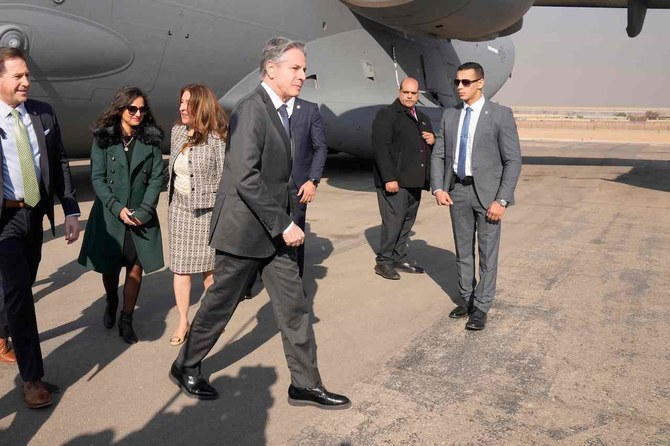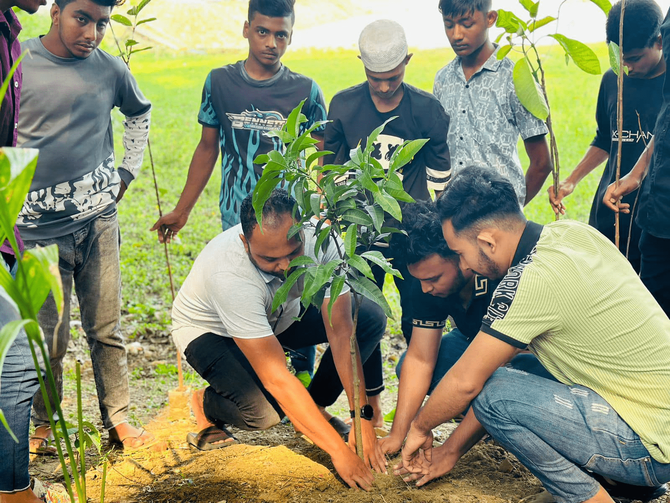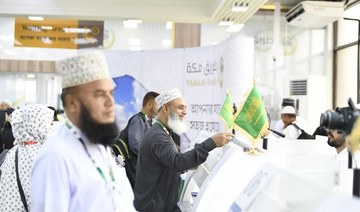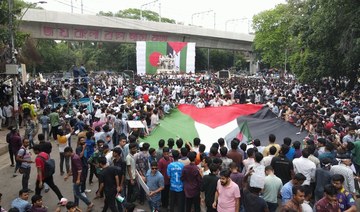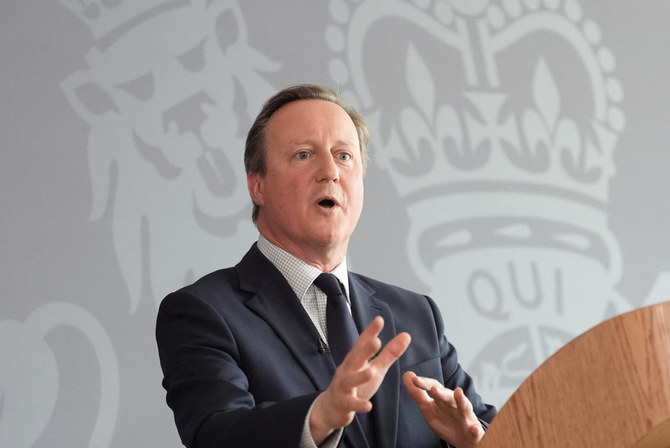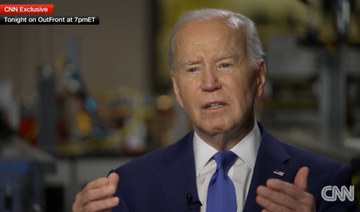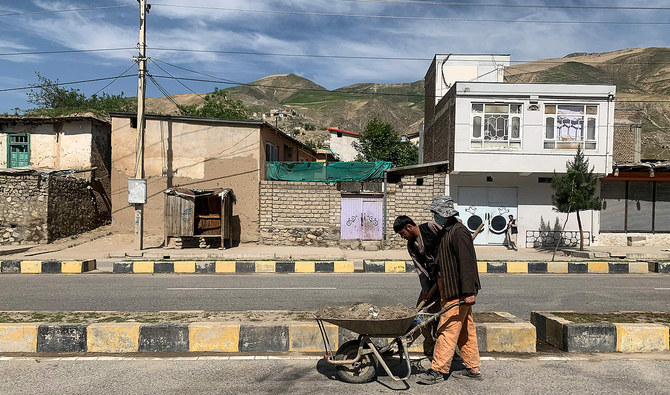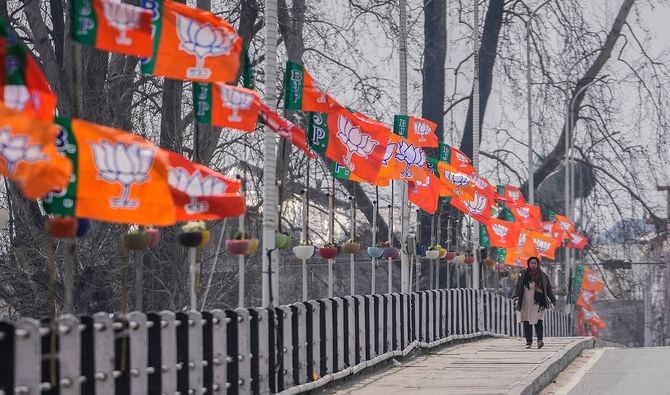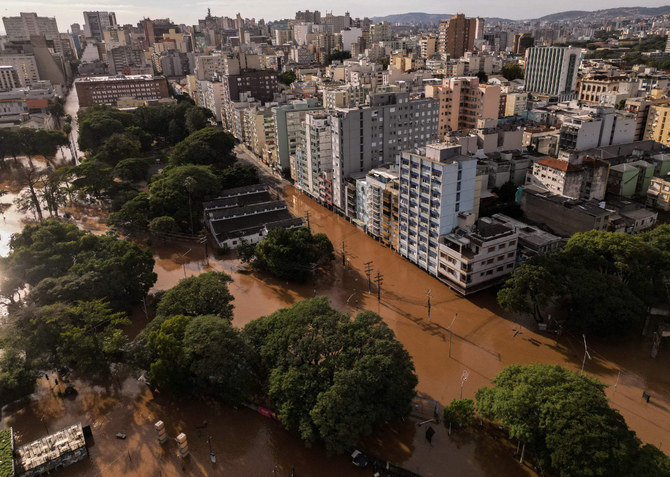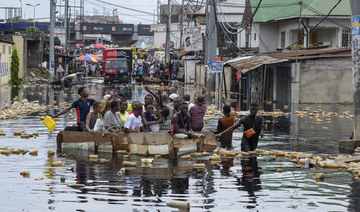GAZA: US Secretary of State Antony Blinken visited Egypt on Tuesday as part of his latest Middle East crisis tour, seeking a new ceasefire and “an enduring end” to the Israel-Hamas war.
Heavy strikes and fighting in Gaza killed at least 99 people overnight, mostly women and children, said the health ministry in the Hamas-ruled territory that has been under almost four months of bombardment.
Fears grew for more than a million Palestinians crowded into the far southern Rafah area as the battlefront draws ever closer in Israel’s campaign to eradicate Hamas over the October 7 attack.
Israeli Defense Minister Yoav Gallant warned on Monday that the military “will reach places where we have not yet fought... right up to the last Hamas bastion, which is Rafah,” on the Egyptian border.
Blinken — on his fifth regional tour since the bloodiest ever Gaza war broke out — was due to meet Egyptian President Abdel Fattah El-Sisi, a day after he held talks with Saudi Crown Prince Mohammed bin Salman in Riyadh.
The US top envoy was later expected in Qatar and then Israel, hoping to shore up support for a truce deal that was hashed out in Paris in January but has not yet been signed off on by either Hamas or Israel.
Israeli troops, with air and naval support, have been engaged in heavy urban combat centered on Gaza’s main southern city of Khan Yunis, the hometown of Hamas’s Gaza chief, Yahya Sinwar, much of which has been reduced to rubble.
Israel accuses Sinwar of masterminding the October 7 attack, which resulted in the deaths of about 1,160 people, mostly civilians, according to an AFP tally based on official figures.
Militants also seized around 250 hostages. Israel says 132 remain in Gaza including 28 who are believed to have been killed.
Israel’s withering military campaign has killed at least 27,585 people in Gaza, mostly women and children, according to the health ministry.
Israel’s offensive
The army said Tuesday that “over the past day, dozens of terrorists have been killed and approximately 80 individuals suspected of involvement in terrorist activity have been apprehended, including a number of terrorists that took part in the October 7 massacre.”
It added that army snipers had killed more than 15 militants, and that a naval vessel had fired missiles at a “terrorist cell.”
An AFP journalist said overnight strikes rocked Khan Yunis and that two air strikes also struck Rafah.
“No place is safe, no place at all — where shall we go?” one Palestinian, Mohamad Kozaat, said after six members of his family, including his daughter, were wounded in an Israeli strike on the border town.
The United States has strongly backed its top regional ally Israel with munitions and diplomatic support, but also urged steps to reduce civilian casualties and to eventually move toward a two-state solution with the Palestinians.
The truce Blinken is hoping to seal proposes a six-week pause to fighting as Hamas frees hostages in exchange for Palestinian prisoners held by Israel and more aid enters Gaza, according to a Hamas source.
Israeli Prime Minister Benjamin Netanyahu, who has faced divisions within his cabinet and public fury over the fate of the remaining hostages, said Israel “will not accept” demands Hamas has made for an exchange involving thousands of prisoners.
The premier’s right-wing Likud party quoted him as saying the terms “should be similar to the previous agreement” in late November, which saw a more limited ratio of Palestinian prisoners exchanged for captives.
Calls for two-state solution
German Chancellor Olaf Scholz in a phone call also told Netanyahu on Monday that “only a negotiated two-state solution would open up the prospect of a sustainable solution to the Middle East conflict.”
And French Foreign Minister Stephane Sejourne, on his first visit to the region since taking office, urged the resumption of Israeli-Palestinian peace talks “without delay.”
As the Gaza war has raged, violence has flared in Lebanon, Iraq, Syria and Yemen, where Iran-backed groups have launched attacks in support of Hamas, triggering counterattacks by Israel and the United States and its partners.
For weeks, Yemen’s Iran-backed Houthis have been targeting what they say are Israel-linked ships in the Red Sea and Gulf of Aden in solidarity with Palestinians.
The attacks on the vital shipping route have disrupted global trade and prompted reprisals by US and British forces, including strikes on two “explosive-laden drone boats” on Monday, according to the US military.
The Houthis said Tuesday they struck US and British ships in two separate attacks, one of which was confirmed by a security firm.
Houthi spokesman Yahya Saree said the “the first attack targeted the American ship Star Nasia, while the other targeted the British ship Morning Tide.”
Blinken spoke with the Saudi crown prince about “regional coordination to achieve an enduring end to the crisis in Gaza” and “the urgent need to reduce regional tensions,” said State Department spokesman Matthew Miller.
Netanyahu said “a complete victory will deal a fatal blow” not just to Hamas but also to other Iran-backed militant groups across the region.



